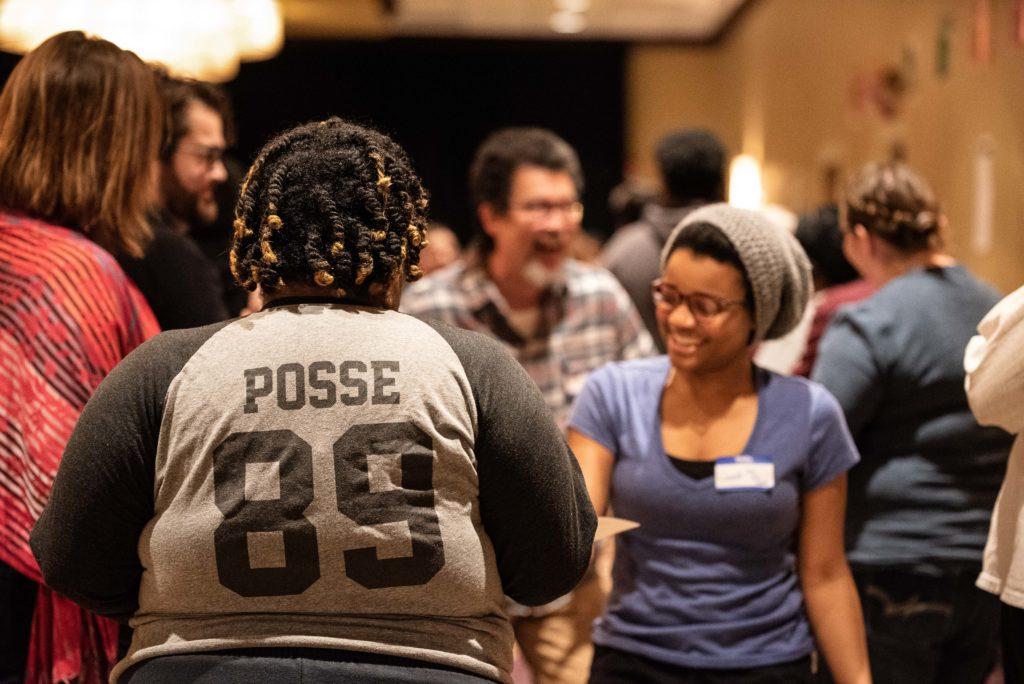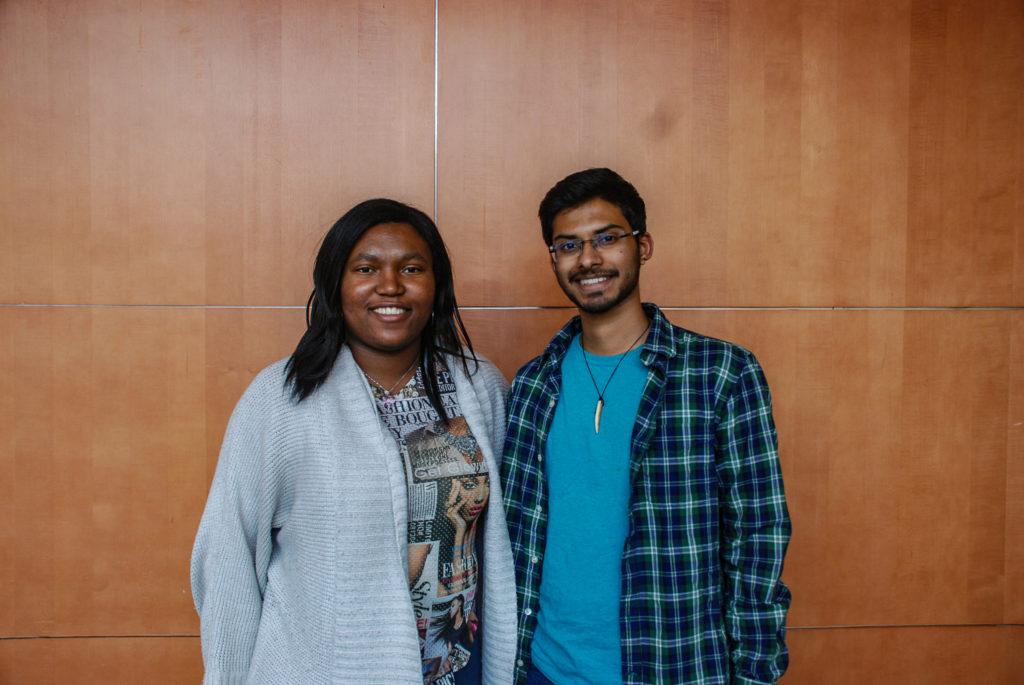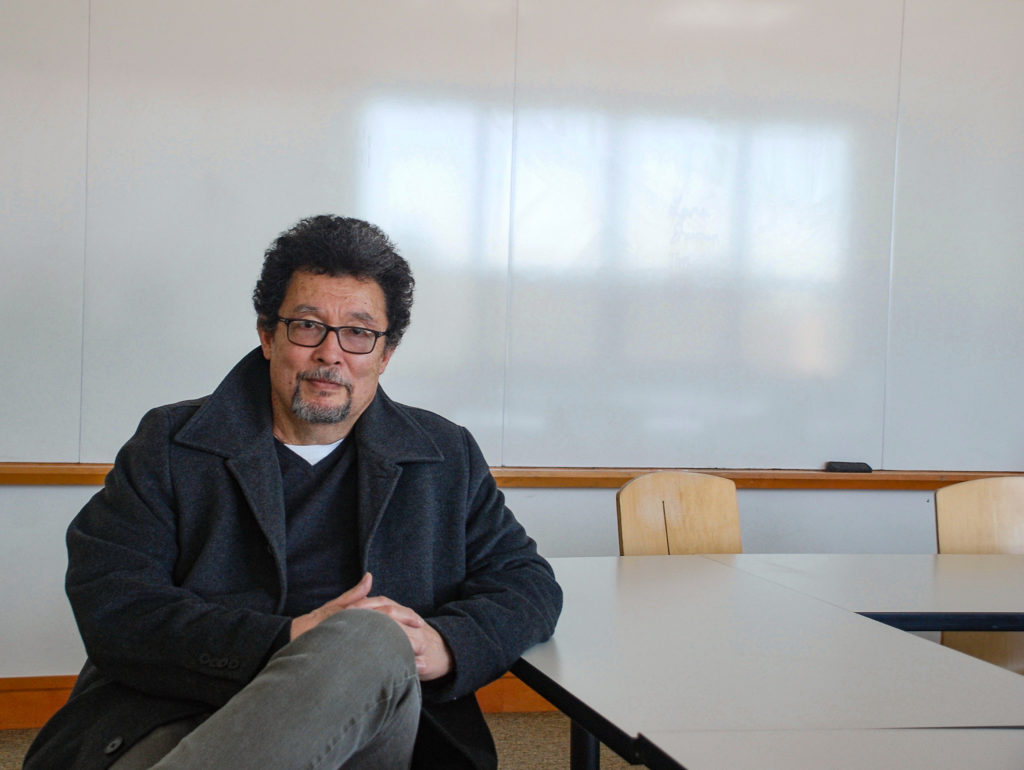
Photo by Jemuel Santos
This past weekend, the Jordan Creek Parkway Marriott hotel in Des Moines hosted the penultimate Posse Plus Retreat (PPR) in which Grinnell will participate. Posse scholars, along with their fellow student, faculty and staff invitees, attended the retreat and engaged in conversations on a variety of topics that they could then reflect back onto the community.
The Posse Foundation is a program that identifies talented students with leadership skills from all over the country and financially helps them attend colleges like Grinnell. These students receive mentoring and coaching before, throughout and after their college experience to help them not only develop their potential, but also to shape their community in positive ways.
“There are a lot of groups and programs whose leadership was mostly comprised of posse scholars for a long time. SOL, CBS, QPOC are some examples of student groups that had a strong Posse presence,” wrote Rene Ayala, ‘19, a Posse DC 11 scholar, in an email to The S&B.
In addition, Posse created a strong bond between students and their mentors, who were mostly faculty and staff within the college. Many of these mentors have mentioned that they learned a lot about Grinnell through their mentees, and that their views and relationship with the institution have significantly changed.
“Oftentimes we talk about a transformative experience for students, but I don’t think we talk enough about the reciprocal relationship where our interaction with a particular group of students might be transformative for professors and staff,” said Professor Steve Andrews, English. Andrews was a mentor for Posse DC 10, which graduated from Grinnell in the class of 2018.
The College ended their relationship with the Posse Foundation after the fall of 2017. Given that the last class of Posse scholars will graduate in May of 2020, this retreat marked a step closer to the end of Posse at the College.
“This retreat really gave me hope that people still support us and care about us. Even though Posse will be stopping, these connections, this community and what Posse represents will continue on at Grinnell,” said Taylor Gaskins, ‘20, a DC 12 Posse scholar that attended the event.
The PPR has long been acclaimed by faculty, staff and students as a very inclusive and diverse environment in which all of these different groups join together to get involved in discourse.
“There were no power dynamics. We were having conversations with all kinds of people with no preconceptions and no stereotypes, just simple communication and open conversation,” said Saketan Anand, ‘21, who attended the event as an invitee.
Andrews, who also attended the retreat, noted the advantages to providing the space at the retreat for these seemingly distinct communities to engage communally in discourse.
“The nice thing about this retreat especially is the way in which it exposes the intersectionality of Grinnell as an educational structure so that it’s not just professors and students and the academic curriculum,” Andrews said.
The main theme discussed in this year’s PossePlus retreat was the State of the Union. On both a broad and more personal scale, the attendees discussed the meaning of the State of the Union — for the country as well as for them individually.
“We analyzed the differences between the single story of what it means to be in America, or what the nation is, versus all these other people’s stories that aren’t told and are left invisible,” Gaskins said.
Gaskins stated that one of the objectives of the retreat was not only to understand what exactly the State of the Union means and what it means to live in America, but also to come up with specific action goals for creating the change they want to see in the community.
Some of the action goals that the attendees derived from these conversations and which the participants hope to achieve within Grinnell include cutting down meat consumption on campus, creating an SGA newsletter, supporting Intercultural Affairs in promoting trans inclusion on campus, building infrastructure within Student Affairs, among others.
Even though Posse scholars will no longer attend the College after next year, they definitely left a big mark, as evidenced in their action goals. They have set high standards for Grinnell’s different positions of leadership.
“We’re going to miss their leadership, and we’re going to miss their activism,” Andrews said. “I would like to see the College take some of the processes that Posse students go through and try to sustain it here on campus.”
After being asked about how the administration feels about the end the College’s relationship with Posse, Joe Bagnoli, dean of admission and financial aid, wrote in an email to The S&B: “Our current Posse Scholars and Posse alumni have made this community far more capable of serving the needs of those who are underrepresented in higher education than there is space in this issue of The S&B to explain.”


Photo by Liz Paik


































































